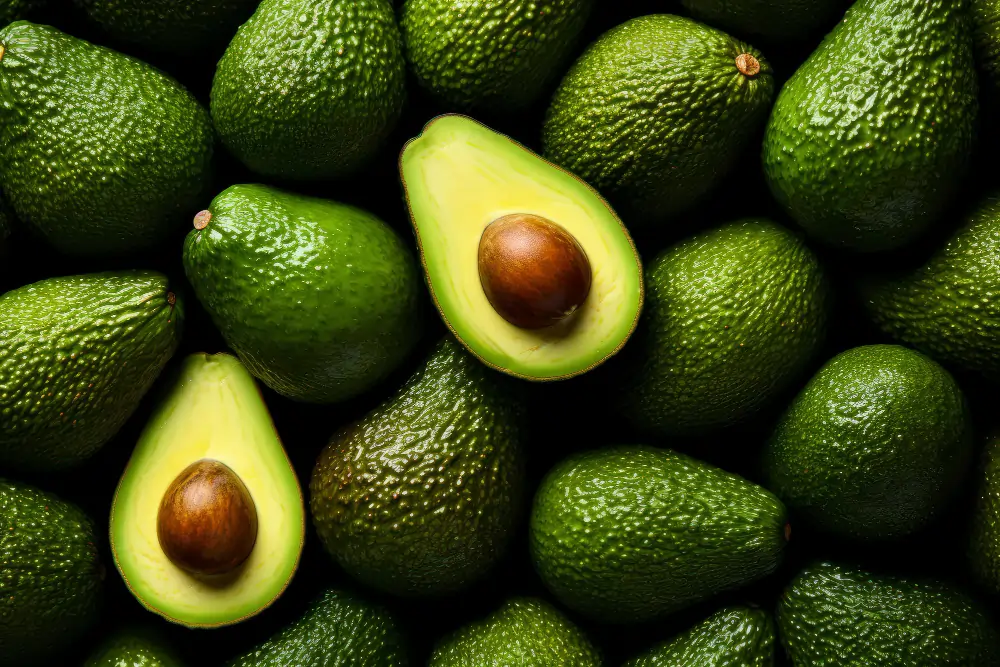Introduction
Are you ready to discover the superhero foods that can help you manage your blood sugar levels like a pro? Living with diabetes can be a challenging journey, but the right foods can make it easier to keep your blood sugar levels in check. In this article, we’re going to explore ten superfoods that can play a vital role in a healthy, balanced diet for people with diabetes.
Superfood #1: Walnuts – The Heart-Healthy Heroes
Walnuts are your new best friend if you have diabetes. These little powerhouses are packed with fiber, protein, and healthy fats, making them a fantastic alternative to simple carbohydrate snacks like chips or crackers. The healthy fats in walnuts can increase good cholesterol and decrease the bad kind, reducing your risk of heart disease and heart attacks, which are elevated for those with diabetes.
In a study published in 2012, people who included nuts like walnuts in their diet at least twice a week had a lower risk of gaining weight compared to those who rarely ate nuts. Obesity and excess body fat are risk factors for diabetes, and losing weight can improve blood sugar levels. Plus, walnuts contain both soluble and insoluble fiber, which can help stabilize blood sugar levels and reduce the risk of diabetes complications.
Tips for use:
- Add crushed walnuts to yogurt, oats, breakfast cereal, or salad.
- Create a tasty trail mix with walnuts, pumpkin seeds, and dark chocolate chips.
Superfood #2: Avocado – The Healthy Fat Avenger
Avocado is a true superhero for those with diabetes. It’s not just rich in healthy fats but also provides essential vitamins and minerals, including potassium, vitamins C, E, and K, lutein, and beta-carotene. Healthy fats in avocados increase fullness and slow down the digestion of carbohydrates, helping to stabilize blood sugar levels.
Research in 2004 showed that vitamin E, found in avocados, could improve oxidative stress and glucose management in overweight individuals with diabetes. In a 2012 study, people with type 1 or type 2 diabetes who took vitamin E with their regular treatment experienced a slower progression of diabetes and its complications.
Tips:
- Spread avocado on toast instead of butter.
- Use avocado in chicken or egg salad instead of mayonnaise or mix it with tuna.
Superfood #3: Ezekiel Bread – The Sprouted Savior
Ezekiel bread is one of the healthiest types of bread available, especially for those with diabetes. It’s a sprouted-grain bread made by soaking and sprouting grains, which increases its protein and nutrient content. Whole grains in Ezekiel bread are rich in B vitamins, minerals, and antioxidants. Research shows that whole-grain and sprouted-grain breads can improve blood sugar response, making them an excellent choice for those with diabetes.
Tips:
- Toast Ezekiel bread and top it with avocado, a sliced hard-boiled egg, and black pepper.
- Look for sprouted grain bagels, English muffins, pizza crust, and tortillas.
Superfood #4: Pumpkin Seeds – The Magnesium Marvel
Pumpkin seeds are a treasure trove of magnesium, fiber, and healthy fatty acids, making them an ideal choice for those managing diabetes. Magnesium is crucial for over 300 bodily processes, including breaking down food for energy. Low magnesium levels are common in people with insulin resistance, a risk factor for diabetes. Studies suggest that increased magnesium intake can reduce the risk of developing type 2 diabetes.
Tips:
- Brush pumpkin seeds with olive oil, season with cumin, and bake until brown and toasted.
- Sprinkle pumpkin seeds on a salad or make pumpkin seed butter for a delicious spread.
Superfood #5: Strawberries – The Antioxidant All-Stars
Strawberries are not only delicious but also rich in antioxidants, particularly fisetin, which can prevent kidney and brain complications in diabetes. They are also packed with vitamin C, though they contain some sugar, so it’s essential to consume them in moderation. Low vitamin C levels have been linked to diabetes, so strawberries can be a tasty way to maintain your levels.
Tips:
- Create a superfood salad with strawberries, spinach, and walnuts.
- Add frozen strawberries to a smoothie with milk and peanut butter.
Superfood #6: Chia Seeds – The Fiber and Omega-3 Champions
Chia seeds are a superfood loaded with antioxidants, omega-3 fatty acids, fiber, and magnesium. These components help reduce the risk of type 2 diabetes and its complications. They are an excellent source of fiber, and adults should aim to consume a certain amount each day, depending on their age and sex.
Tips:
- Sprinkle chia seeds on yogurt, cereal, and oats.
- Use chia as an egg substitute in baking.
Superfood #7: Ginger – The Anti-Inflammatory Avenger
Ginger is a potent anti-inflammatory food rich in antioxidants. Some research has found that ginger can reduce fasting blood sugar levels and improve insulin sensitivity in people with type 2 diabetes. In a study, participants who took ginger capsules for eight weeks experienced a significant reduction in blood sugar levels.
Tips:
- Make ginger tea by steeping fresh ginger in boiling water.
- Add fresh or dried ginger to a stir-fry or homemade salad dressing.
Superfood #8: Spinach – The Potassium Powerhouse
Spinach is a nutritional powerhouse for people with diabetes. It’s a great source of dietary potassium, which is linked to a lower risk of diabetes and its complications. Spinach also provides a wide range of vitamins and minerals while being low in calories.
Tips:
- Add spinach to smoothies or sandwiches.
- Use spinach in omelets or pasta sauces for added nutrition.
Superfood #9: Cinnamon – The Blood Sugar Regulator
Cinnamon has been shown to lower blood sugar levels in people with diabetes. Studies have found improvements in body mass index (BMI), blood sugar levels, and lipid levels in those who used cinnamon supplementation. While more research is needed, cinnamon can be a flavorful addition to your diet.
Tips:
- Sprinkle cinnamon on sweet potatoes, roasted carrots, and butternut squash.
- Add cinnamon to oatmeal for extra flavor without the need for sugar.
Superfood #10: Tomatoes – The Blood Pressure Buddy
Fresh tomatoes have a low glycemic index, meaning they release sugar into the bloodstream slowly, preventing blood sugar spikes. Eating tomatoes may help reduce the cardiovascular risk associated with type 2 diabetes.
Now, you might be wondering, how can you combine these superfoods into your daily meals for maximum benefit. Let’s put it all together in a sample menu:
Sample Diabetes-Friendly Menu
Breakfast:
- Toasted Ezekiel bread (complex carbohydrate)
- Avocado (healthy fat)
- Spinach (antioxidants)
- Hard-boiled egg (lean protein and healthy fat)
Lunch:
- Leafy greens (fiber, vitamins, and minerals)
- Quinoa (complex carbohydrate and lean protein)
- Roasted beets (antioxidants)
- Lean protein (tuna, chicken, or tofu)
Snack:
- Chopped apple (complex carb)
- Walnut and pumpkin seed mix (healthy fat and lean protein)
Dinner:
- Salmon (lean protein and healthy fat)
- Fresh ginger (antioxidants)
- Sweet potato (complex carb) topped with cinnamon
- A choice of veggies
Remember, there’s no one-size-fits-all diet for diabetes, so it’s essential to consult your doctor or dietitian for personalized advice.
In conclusion, these superfoods can be your allies in managing diabetes effectively. They are not only nutritious but also delicious, making it easier to maintain a healthy and balanced diet. Incorporate these superfoods into your meals, and you’ll be well on your way to better blood sugar control.
FAQs: The Best Superfoods to Control Blood Sugar
1. Can these superfoods cure diabetes?
No, these superfoods can’t cure diabetes, but they can help manage blood sugar levels and reduce the risk of complications.
2. How should I incorporate these superfoods into my diet?
You can include these superfoods in various ways, such as in salads, smoothies, and as toppings for your favorite dishes.
3. Can I eat these superfoods if I have type 1 diabetes?
Absolutely! These superfoods can benefit people with both type 1 and type 2 diabetes.
4. Are there any side effects of consuming these superfoods?
In general, these superfoods are safe and well-tolerated. However, it’s essential to monitor your blood sugar levels and consult your healthcare provider for any concerns.
5. Can these superfoods replace my diabetes medication?
No, superfoods are not a substitute for diabetes medication. They are meant to complement a well-balanced diet and a diabetes management plan prescribed by your healthcare provider.













 Afrikaans
Afrikaans Albanian
Albanian Amharic
Amharic Arabic
Arabic Armenian
Armenian Azerbaijani
Azerbaijani Basque
Basque Belarusian
Belarusian Bengali
Bengali Bosnian
Bosnian Bulgarian
Bulgarian Catalan
Catalan Cebuano
Cebuano Chichewa
Chichewa Chinese (Simplified)
Chinese (Simplified) Chinese (Traditional)
Chinese (Traditional) Corsican
Corsican Croatian
Croatian Czech
Czech Danish
Danish Dutch
Dutch English
English Esperanto
Esperanto Estonian
Estonian Filipino
Filipino Finnish
Finnish French
French Frisian
Frisian Galician
Galician Georgian
Georgian German
German Greek
Greek Gujarati
Gujarati Haitian Creole
Haitian Creole Hausa
Hausa Hawaiian
Hawaiian Hebrew
Hebrew Hindi
Hindi Hmong
Hmong Hungarian
Hungarian Icelandic
Icelandic Igbo
Igbo Indonesian
Indonesian Irish
Irish Italian
Italian Japanese
Japanese Javanese
Javanese Kannada
Kannada Kazakh
Kazakh Khmer
Khmer Korean
Korean Kurdish (Kurmanji)
Kurdish (Kurmanji) Kyrgyz
Kyrgyz Lao
Lao Latin
Latin Latvian
Latvian Lithuanian
Lithuanian Luxembourgish
Luxembourgish Macedonian
Macedonian Malagasy
Malagasy Malay
Malay Malayalam
Malayalam Maltese
Maltese Maori
Maori Marathi
Marathi Mongolian
Mongolian Myanmar (Burmese)
Myanmar (Burmese) Nepali
Nepali Norwegian
Norwegian Pashto
Pashto Persian
Persian Polish
Polish Portuguese
Portuguese Punjabi
Punjabi Romanian
Romanian Russian
Russian Samoan
Samoan Scottish Gaelic
Scottish Gaelic Serbian
Serbian Sesotho
Sesotho Shona
Shona Sindhi
Sindhi Sinhala
Sinhala Slovak
Slovak Slovenian
Slovenian Somali
Somali Spanish
Spanish Sundanese
Sundanese Swahili
Swahili Swedish
Swedish Tajik
Tajik Tamil
Tamil Telugu
Telugu Thai
Thai Turkish
Turkish Ukrainian
Ukrainian Urdu
Urdu Uzbek
Uzbek Vietnamese
Vietnamese Welsh
Welsh Xhosa
Xhosa Yiddish
Yiddish Yoruba
Yoruba Zulu
Zulu